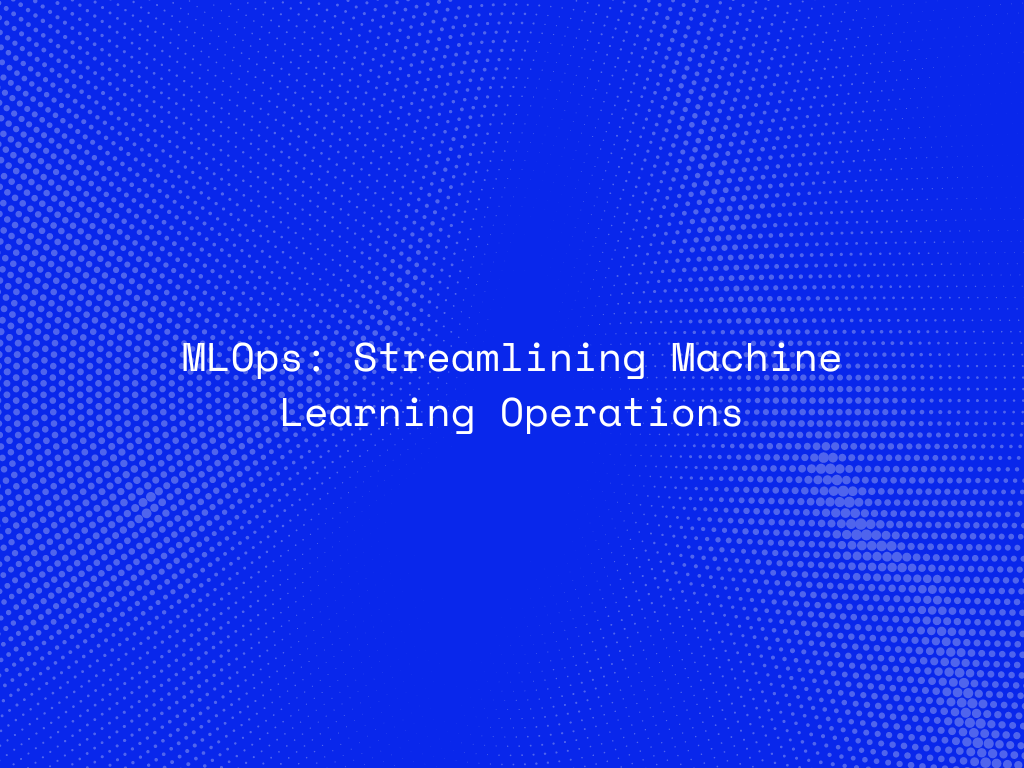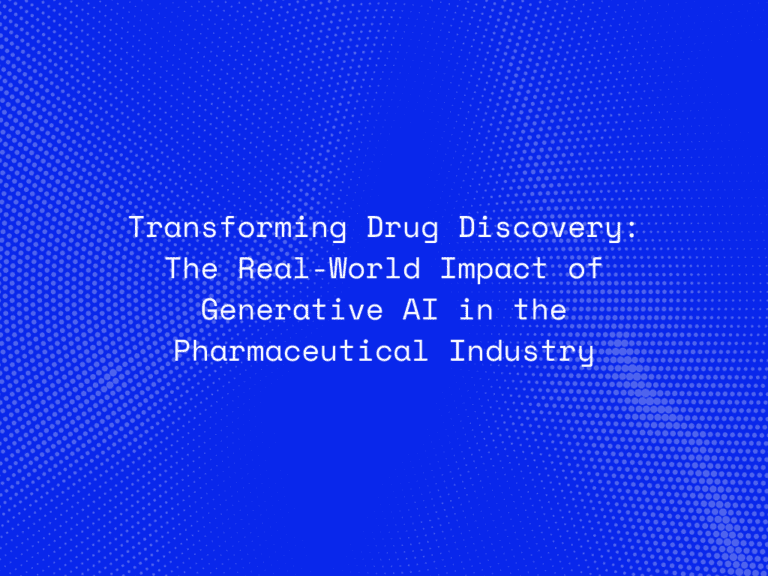Machine Learning Operations (MLOps) is an emerging discipline that combines machine learning (ML) with operations practices to streamline the deployment, monitoring, and management of ML models in production. MLOps aims to enhance collaboration between data scientists and IT operations, ensuring reliable and scalable machine learning applications. This blog explores the concept of MLOps, its benefits, key components, and best practices.
What is MLOps?
MLOps is a set of practices that brings together machine learning and IT operations to automate and optimize the entire ML lifecycle, from development to deployment and maintenance. It builds upon principles from DevOps, focusing specifically on the unique challenges of ML systems, such as data management, model training, and continuous integration and deployment (CI/CD) of models.
Benefits of MLOps
Enhanced Collaboration
MLOps fosters collaboration between data scientists, ML engineers, and IT operations, creating a seamless workflow that bridges the gap between model development and deployment.
Increased Efficiency
Automating repetitive tasks and streamlining workflows reduces the time and effort required to develop, deploy, and maintain ML models, increasing overall efficiency.
Scalability
MLOps enables the scalable deployment of ML models, ensuring they can handle increased data volumes and user demands without compromising performance.
Reliability
By implementing best practices for monitoring and maintenance, MLOps ensures that ML models remain reliable and perform well in production environments.
Continuous Improvement
MLOps supports continuous integration and continuous deployment (CI/CD) of ML models, enabling rapid iteration and improvement based on real-time feedback and performance data.
Connect With Us
Key Components of MLOps
Version Control
Managing versions of code, data, and models is crucial for reproducibility and traceability. Version control systems like Git help track changes and collaborate effectively.
Automated Pipelines
Automated pipelines streamline the ML workflow, from data ingestion and preprocessing to model training, evaluation, and deployment. Tools like Kubeflow and MLflow facilitate the creation and management of these pipelines.
Monitoring and Logging
Continuous monitoring and logging of ML models in production help detect issues early and ensure models perform as expected. Tools like Prometheus, Grafana, and ELK Stack are commonly used for monitoring and logging.
CI/CD for ML
CI/CD practices automate the testing and deployment of ML models, ensuring that new versions can be quickly and safely released. Jenkins, CircleCI, and GitLab CI are popular tools for CI/CD in MLOps.
Model Management
Managing ML models, including their deployment, versioning, and rollback, is essential for maintaining control over the ML lifecycle. Model registries like MLflow Model Registry and Seldon help manage model versions and deployments.
Infrastructure Management
Managing the underlying infrastructure for ML workloads, including compute resources, storage, and networking, is critical for scalability and performance. Infrastructure-as-Code (IaC) tools like Terraform and Kubernetes facilitate efficient infrastructure management.
Best Practices for Implementing MLOps
Establish Clear Roles and Responsibilities
Define clear roles and responsibilities for data scientists, ML engineers, and IT operations to ensure smooth collaboration and efficient workflow management.
Automate Repetitive Tasks
Automate repetitive and time-consuming tasks, such as data preprocessing, model training, and deployment, to increase efficiency and reduce the risk of human error.
Implement Robust Monitoring
Set up comprehensive monitoring and logging to track the performance of ML models in production. Use automated alerts to notify relevant teams of any issues or anomalies.
Adopt CI/CD Practices
Implement CI/CD pipelines for ML models to enable rapid iteration and continuous improvement. Ensure that new model versions are thoroughly tested before deployment.
Focus on Reproducibility
Ensure that all aspects of the ML workflow, including data, code, and models, are version-controlled and reproducible. This facilitates collaboration, debugging, and compliance with regulatory requirements.
Prioritize Security
Implement robust security measures to protect sensitive data and ML models. Use encryption, access controls, and regular security audits to safeguard your ML infrastructure.
Connect With Us
Challenges in MLOps
Data Management
Managing large volumes of data, ensuring data quality, and maintaining data privacy are significant challenges in MLOps.
Model Monitoring and Maintenance
Continuously monitoring and maintaining ML models in production to ensure they perform as expected can be complex and resource-intensive.
Scalability
Ensuring that ML models and infrastructure can scale to handle increased data volumes and user demands requires careful planning and management.
Integration with Existing Systems
Integrating ML models and workflows with existing systems and applications can be challenging, particularly in legacy environments.
Skill Gaps
Implementing MLOps requires a diverse skill set, including expertise in ML, software engineering, and IT operations. Bridging skill gaps within teams can be challenging.
The Future of MLOps
Increased Adoption
As organizations recognize the benefits of MLOps, adoption will continue to grow across various industries, leading to more efficient and reliable ML operations.
Advancements in Tools and Platforms
The development of new tools and platforms will further simplify and enhance MLOps practices, making it easier for organizations to implement and scale their ML operations.
Integration with Emerging Technologies
MLOps will increasingly integrate with other emerging technologies, such as edge computing and the Internet of Things (IoT), enabling new applications and use cases for ML.
Focus on Ethics and Governance
As the use of ML becomes more widespread, there will be a greater focus on ethical considerations and governance, ensuring that ML models are fair, transparent, and accountable.
Conclusion
MLOps is transforming the way organizations develop, deploy, and manage machine learning models, enabling more efficient, scalable, and reliable ML operations. By adopting MLOps practices, businesses can enhance collaboration, improve efficiency, and ensure the continuous improvement of their ML models. As the field of MLOps continues to evolve, it will play a crucial role in the future of AI and machine learning, driving innovation and enabling new possibilities.




